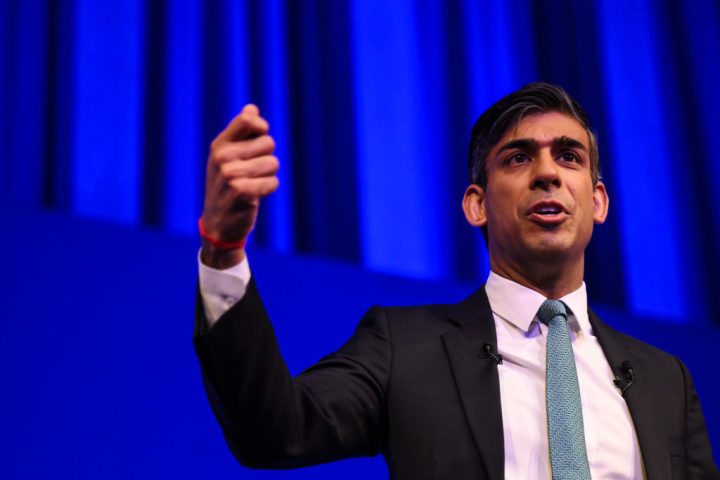Everyone knew that the Conservatives were going to take a pasting in the local elections. Aside from deserving a particular kicking for the horror show of 2022, with its runaway inflation and two prime ministerial defenestrations, this is just what happens to long-serving governments deep into parliaments.
So the question foremost in the minds of Conservative MPs – who naturally will be regretful about losing hundreds of conscientious councillors – is whether the English public have sent a message that they have already decided to get behind Keir Starmer and Labour at the next general election. In other words, is it over?
The government’s protracted and out-of-control tailspin of last year has been arrested
There is no such message discernible from the first wave of results. Labour took control in two of its target councils – the Red Wall citadel of Stoke-on-Trent and Plymouth. But in Stoke, the gains made by Starmer’s party were predominantly against independent candidates with the Tories holding their number of councillors at 14. And in Plymouth the main motivating factor was a desire on the part of local residents to punish the previous Tory regime for its outrageous recent ‘chainsaw massacre’ of mature trees on a city centre avenue.
And Labour’s overall vote share seemed hardly to have budged from when these seats were last fought. If anything, the Lib Dems have been the standout performers – a signal that what we are looking at is a bog standard mid-term protest vote rather than a sea change moment. As Sir John Curtice, Britain’s leading elections expert, told the BBC this morning, there was the beginning of a feeling that Starmer’s party had underwhelmed.
The leading Boris Johnson supporters in the Conservative parliamentary party were putting it about just a few weeks ago that a local election bloodbath would immediately be followed by a bid to reinstall the blond bombshell in Downing Street. Given all that, this counts as significant progress for Rishi Sunak: nobody now thinks that is remotely likely to happen.
It was a minor stroke of luck for Sunak that a run-of-the-mill local elections pasting was never going to hold the media gaze ahead of the draw of a first coronation for 70 years. This is a weekend when lobby journalists will generally be aware that their most frenetic contributions are likely to fall flat with news desks. In other words, not an opportune moment to get a bandwagon going.
Of course, none of this means that things can be said to be actually going well for the Sunak administration, just that the government’s protracted and out-of-control tailspin of last year has been arrested. The ground is not rushing up to meet the propeller at anything like the rate it was in the autumn.
This could easily prove to be a very short-lived respite. There are, for instance, already lots of nervous whispers going around Whitehall about the likely dimensions of the next set of official immigration statistics, due on 25 May. If net immigration is shown to have risen above the unprecedented 504,000 revealed by the last set of figures – as is being anticipated – then there will be little prospect of luring disenchanted 2019 Tories back to the fold anytime soon.
And yet there is more reason than less this morning to think that the party leader head-to-head battle is likely to favour the Conservatives when the general election comes. It’s not that Sunak has proved himself a great success, just that replacing him with Starmer doesn’t seem like an obvious thing for a country looking to get back on the right track to do. When the moment of truth comes and the moveable object faces the resistible force at the ballot box, it could go either way.
And given where they were in the days after the Truss-Kwarteng mini-Budget, most Conservative MPs will surely choose to stick for now rather than to twist again.







Comments